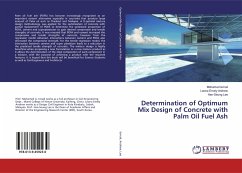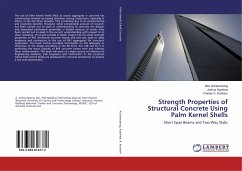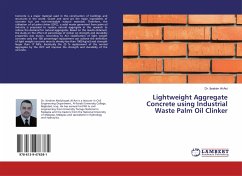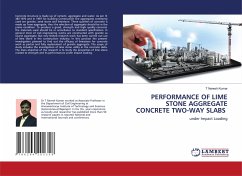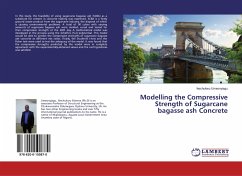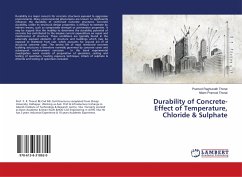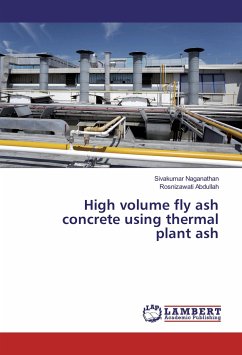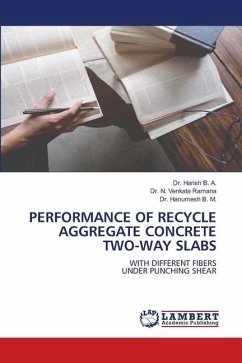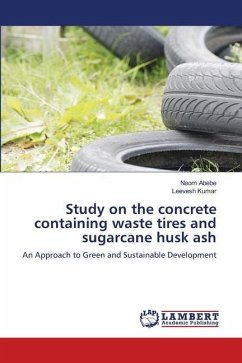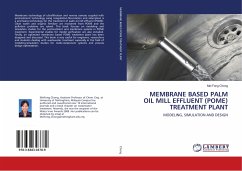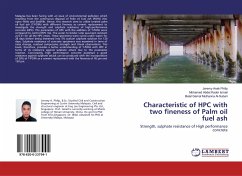
Characteristic of HPC with two fineness of Palm oil fuel ash
Strength, sulphate resistance of High performance concrete
Versandkostenfrei!
Versandfertig in 6-10 Tagen
27,99 €
inkl. MwSt.

PAYBACK Punkte
14 °P sammeln!
Malaysia has been facing with an issue of environmental pollution which resulting from the continuous disposal of Palm oil fuel ash (POFA) into open fields and landfills. Hence, this research aims to utilize treated palm oil fuel ash (T-POFA) with different fineness as cement replacement to investigate the strength and sulphate resistance of high-performance concrete (HPC). The parameters of HPC with the addition of T-POFA were compared to control HPC mix. The water to binder ratio was kept constant at 0.31 for all the HPC mixes. These specimens were cured under water for 28 days before being ...
Malaysia has been facing with an issue of environmental pollution which resulting from the continuous disposal of Palm oil fuel ash (POFA) into open fields and landfills. Hence, this research aims to utilize treated palm oil fuel ash (T-POFA) with different fineness as cement replacement to investigate the strength and sulphate resistance of high-performance concrete (HPC). The parameters of HPC with the addition of T-POFA were compared to control HPC mix. The water to binder ratio was kept constant at 0.31 for all the HPC mixes. These specimens were cured under water for 28 days before being immersed into 5% sodium sulphate solution for 120 days. Sulphate resistance of concrete specimens was examined in term of mass change, residual compressive strength and Visual observations. This book, therefore, provides a better understanding of T-POFA with HPC in terms of its resistance against sulphate attack due to the pozzolanic reaction. Conclusively, high performance concrete possesses a good resistance against sulphate attack can be produced with the incorporation of 20% of T-POFA as a cement replacement with the fineness of 45 mim and 150 mim.



